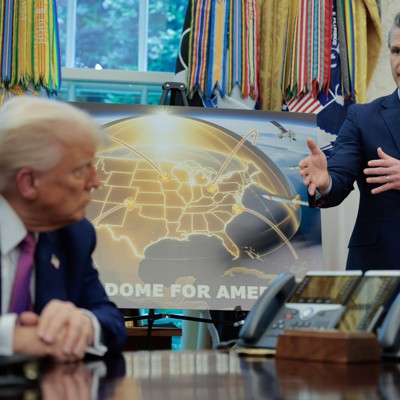The Golden Dome missile-defense project has attracted significant financial interest, leading the Missile Defense Agency (MDA) to extend the deadline for contractors to submit proposals for its funding. Originally set for October 10, the new deadline is now October 16, allowing additional time for responses to the numerous inquiries received from industry participants.
The MDA’s $151 billion project, known as the Scalable Homeland Innovative Enterprise Layered Defense (SHIELD) contract vehicle, generated over 1,500 questions from contractors as of October 2, according to an internal memo. Mark Wright, a spokesman for the MDA, noted that these questions were largely focused on requests for clarifications specific to individual company circumstances, resulting in minimal updates to the solicitation itself. The immense volume of questions necessitated the extension rather than changes to the proposal requirements.
Industry enthusiasm for the Golden Dome initiative reflects a robust interest from contractors in the Trump administration’s ambitious missile defense plans. Todd Harrison, a senior fellow at the American Enterprise Institute, highlighted the substantial funding already appropriated by Congress as a key driver of this interest.
In May, President Trump stated that the cost of the Golden Dome project would be approximately $175 billion, expecting it to be completed in three years and to be fully effective in preventing missile strikes on the continental United States. Although a reconciliation bill passed in the summer allocated $25 billion for this initiative, estimations suggest this amount is only a small fraction of the total projected cost.
A Congressional Budget Office report from May estimated the overall price tag for the project ranging between $542 billion and $831 billion over 20 years. Harrison later indicated that the costs could vary significantly based on the project’s goals, projecting expenses could reach from $252 billion to over $3.6 trillion for comprehensive protection against diverse aerial threats.
The Trump administration claims that the Golden Dome system will use both ground-based and orbital interceptors to defend against ballistic, cruise, and hypersonic missiles. This endeavor is overseen by Space Force Gen. Michael Guetlein, the former vice chief of space operations. Last month, the Space Force began soliciting proposals for its space-based interceptor program, with Guetlein briefing members of the Senate Armed Services Committee, resulting in skepticism from some Democratic lawmakers.
Industry representatives at the Air & Space Force Association’s conference emphasized the complexity and financial demands of developing orbital interceptors. Robert Fleming, corporate vice president of Northrop Grumman’s Space Systems sector, noted that the project presents significant engineering challenges and requires substantial investment to address.












